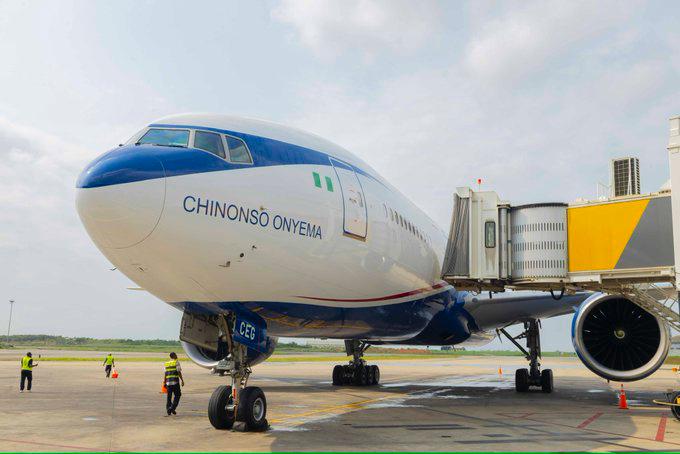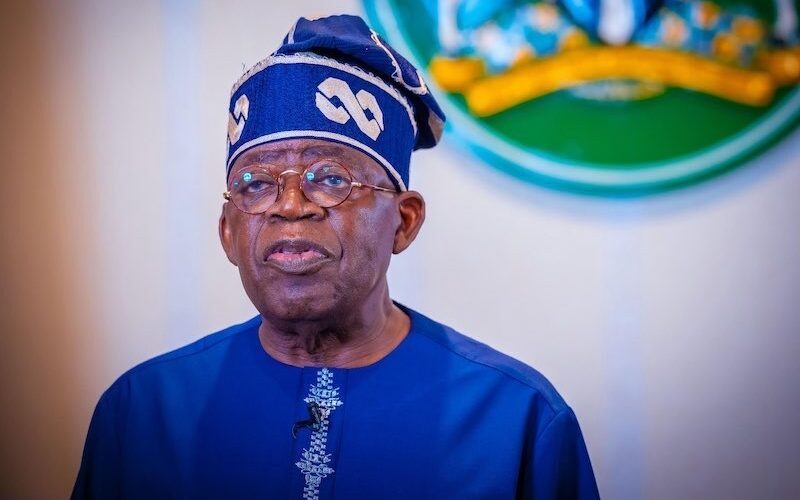With traditional finance struggling to close Nigeria’s infrastructure and social gaps, the Nigerian Capital Development Fund is positioning impact investing as a serious alternative for growth, writes Festus Akanbi
I
n Nigeria today, a quiet revolution is unfolding, not on the streets or in the corridors of power, but in the boardrooms where finance meets social good. It is called impact investing, a model that marries profit with purpose, and in many ways, it is reshaping the country’s development story.
Impact investing refers to investments made with the intention of generating positive, measurable social and environmental impact alongside financial return. Over the last decade, Nigeria has emerged as one of Africa’s most dynamic frontiers for this practice. The money is flowing into renewable energy, healthcare, agriculture, education, affordable housing, and financial inclusion. Yet, the heartbeat of this movement can be traced to one institution, the Nigerian Capital Development Fund (NCDF) Group.
From Aid to Impact
For decades, Nigeria relied heavily on donor funds and aid programmes. While these were lifesaving in critical moments, they were never designed to scale prosperity. “Necessity lit the fire,” says the founder of NCDF Group, Hareter Babatunde Oralusi, reflecting on Nigeria’s shift toward impact-driven finance. “We realised aid could stabilise, but only structured capital could build a sustainable future.”
The turning point came in the early 2010s, when entrepreneurs, diaspora investors, and forward-thinking policymakers started to demand new vehicles for development, models that would deliver both bankable returns and social dividends. Out of this demand, NCDF was born, a bridge between capital and communities.
Established as a public–private platform for inclusive finance, NCDF has grown into one of Nigeria’s foremost champions of blended financing and social investment. The organisation is not just raising capital, it is building systems for long-term impact. Its portfolio cuts across sectors that affect everyday lives, and this includes: Renewable energy and rural electrification, connecting off-grid communities to sustainable power. There is also the Diaspora-led affordable housing, targeting more than 10,000 homes for low- and middle-income earners. It also has on its list healthcare infrastructure, including e-health platforms and smart clinics. There is also the agriculture and agro-processing value chains, boosting food security and farmer incomes. Not left out are micro-insurance and digital financial services, expanding financial inclusion. The list also includes innovation financing for high-growth Nigerian startups.
In 2025, NCDF unveiled its most ambitious plan yet, the $1 billion Nigeria Impact Investment Development Plan (NIIDP). Aligned with Nigeria’s National Development Plan (2021–2025), the initiative seeks to catalyse large-scale investments across all six geopolitical zones, with the ultimate goal of supporting the government’s ambition of a $1trillion economy.
But for Oralusi, the plan is not about big numbers. “The $1 billion NIIDP is about unlocking livelihoods, dignity, and hope,” he explains. “For farmers, it means access to agro-processing hubs and off-take guarantees. For small businesses, it means affordable working capital. For young graduates, it means employability pathways through housing, healthcare tech, and entrepreneurship accelerators. NCDF isn’t just financing projects, we’re funding futures.”
Building a Platform for Policy and Practice
To entrench impact investing in Nigeria’s development DNA, NCDF created the Nigeria Impact Investment Summit (NIIS), an annual gathering that brings together policymakers, institutional investors, development finance institutions, and global partners.
NIIS has become more than a summit; it is now the marketplace where ideas, partnerships, and capital commitments are brokered. From launching SDG-aligned funds to training impact fund managers, the platform is shaping a new ecosystem where private capital works hand-in-hand with national development goals.
The Mission
At the heart of NCDF’s story is its founder, Hareter Babatunde Oralusi, born in Ibadan on September 28, 1971. His life reads like a bridge between worlds. rooted in Yoruba royal heritage yet sharpened by international education and global exposure.
Educated in Nigeria and Austria, Oralusi earned a master’s degree in Human Resource Management and Organisational Development from PEF Private University of Management in Vienna, and later advanced his business and management studies in the United Kingdom.
His career has spanned development finance, social enterprise, philanthropy, and politics. He founded EmergX Finance Corporation (UK), a regulated development finance institution that issues green and social bonds. He established the London School of Social Enterprise and Sustainable Economics, launched the NCDF Diaspora Impact Fund, and set up the Fatherland Foundation in the USA to link diaspora capital with African development needs.
In Nigeria, his public service has included a stint as Senior Special Assistant to the Governor of Osun State and later as Director General of the Forerunner Group during President Goodluck Jonathan’s campaign. In 2021, he joined the All Progressives Congress (APC), bringing his development-focused voice into the political mainstream.
But beyond titles, what stands out is his Ubuntu-inspired leadership philosophy: people first, dignity always.
The Diaspora as Co-Architects
If there is one theme that Oralusi returns to again and again, it is the role of Nigeria’s diaspora. “Diaspora capital is not just important,” he insists.
“It is indispensable. Donors operate in cycles. DFIs are often slow and risk-averse. The diaspora, however, brings speed, emotional equity, and economic relevance. They understand the problems because they lived them. They want to invest with heart, but also with discipline,” he added.
This thinking birthed the NCDF Diaspora Impact Fund, offering structured and regulated channels for diaspora Nigerians to invest in healthcare, renewable microgrids, and affordable housing. No longer passive remitters of money, diaspora Nigerians are being positioned as co-architects of development.
Housing: The Great Multiplier
Asked which sector holds the biggest promise for Nigeria’s impact future, Oralusi places his bet on housing. “Housing is the great multiplier,” he explains. “It drives job creation in construction and manufacturing. It improves health outcomes by providing safe environments. It anchors family wealth. Our Diaspora Affordable Housing Programme is already unlocking mortgages and cooperative construction finance while delivering returns. In five years, housing will have lifted more families out of vulnerability than any other sector.”
In a country with an estimated 17 million housing deficit, this focus could prove transformative.
For Oralusi, legacy is not about skyscrapers or monuments. “Legacy, for me, is not about buildings or titles. It’s about infrastructure that outlives intention, systems that keep working long after we’re gone. If I can be remembered as someone who built bridges between our people and their possibilities, then I have succeeded.”
Already, his work has helped transform Nigeria’s impact finance landscape from scattered projects into a coordinated ecosystem. Through NCDF’s funds and platforms, Nigerians are proving that they need not beg for aid; they can build engines of equity.
Or as he frames it, “We no longer begged for aid. We built engines of equity. And Baba HBO helped us start the engine.”
Nigeria’s economic story has often been tethered to oil and debt. But impact investing offers a fresh imagination: a model where money is not just extracted but multiplied in the service of people.
Through NCDF’s bold plans, diaspora capital, and Oralusi’s visionary leadership, Nigeria is laying the groundwork for an impact economy that could redefine its development trajectory.
The stakes are high. But if this model succeeds, Nigeria may become not just Africa’s largest economy by GDP, but also its most inclusive economy, one where prosperity is measured in jobs created, houses built, communities electrified, and futures funded.
Funding Futures, Building Legacy
Oralusi speaks of legacy in terms that go beyond bricks and mortar. “Legacy, for me, is not about buildings or titles,” he reflects. It’s about infrastructure that outlives intention, systems that keep working long after we’re gone. If I can be remembered as someone who built bridges between our people and their possibilities, then I have succeeded.”
Already, his imprint is visible. NCDF has helped move Nigeria’s impact investing landscape from fragmented initiatives to a coordinated development finance ecosystem. Under his leadership, diaspora funds are flowing into Nigeria not as charity, but as structured, bankable investments. And through platforms like NIIS, the conversation about impact investing is no longer peripheral—it is central to Nigeria’s economic future.
Nigeria’s economic story has long been framed around oil, debt, and aid. But NCDF and Oralusi are helping to script a new chapter, one where the country becomes a laboratory for impact-driven prosperity. With initiatives in renewable energy, housing, healthcare, and digital finance, the promise is clear: capital can serve communities, and social change can be profitable.
For a nation aiming to build a $1 trillion economy, the stakes could not be higher. But if Oralusi’s vision is realised, Nigeria may yet prove that the real wealth of a nation lies not just in its resources, but in the ability of its people to fund their own future
The post Impact Capital at Work in Nigeria appeared first on THISDAYLIVE.


